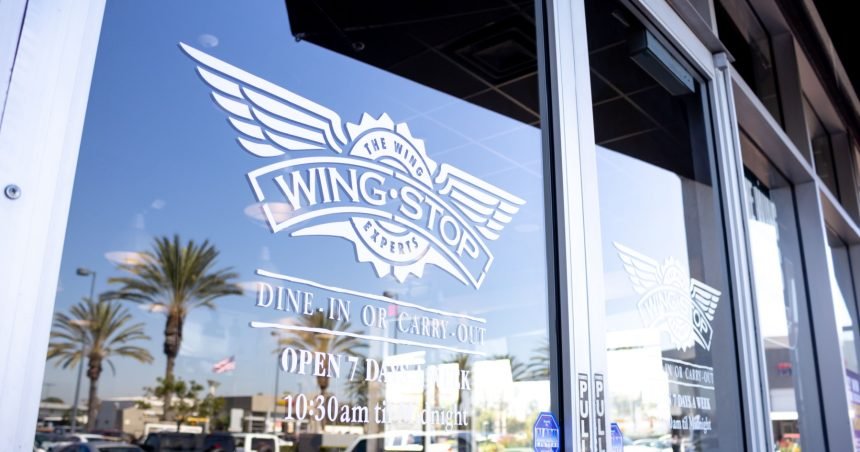Wingstop’s diners fall in the four “weak pockets” of today’s economy. | Photo: Shutterstock
Restaurants are faced with navigating an increasingly bifurcated economy as the income gap widens between haves and have-nots. Now Wall Street analysts see some chains at risk because of their guests’ political views.
Andrew Charles, senior analyst with TD Cowen, in a report on Friday bumped Wingstop as the top stock pick because of the brand’s high exposure to four demographics under pressure in today’s economy, or what he calls “weak pockets.”
Wingstop’s guests tend to be younger (about 40%), for example, with less disposable income, or lower-income (about 31%) and not necessarily young.
About 20% of guests are Hispanic, another demographic group under pressure. Hispanic consumers have been dining out less in this era of aggressive deportation tactics and frightening headlines, Charles contends.
And then there are the Democratic Party/liberal consumers (about 35% at Wingstop), which are also under pressure in the current economy, he writes.
Charles sees a “clear opposite trend in consumer sentiment between Republicans and Democrats since the November 2024 election,” the report said.
Consumer sentiment among Republicans spiked after the election and, after a leveling a bit around the tariff news of the spring, has continued to gradually climb. Those folks are feeling pretty good about the economy and, therefore, are more likely to spend.
Sentiment among Democrats, meanwhile, began to plummet just before the election, and has continued to drop steadily, leveling off around May and into June this year.
That demographic, therefore, is more likely to cut back on spending. Charles found a correlation between exposure to those diners and declines in same-store sales.
Charles argues that the consumer sentiment gap between Democrats and Republicans could also explain why fast-casual chains more broadly, including Chipotle, Cava, Shake Shack and Sweetgreen, have seen sales decline this year. Like Wingstop, those brands also tend to serve a demographic that is younger and more urban.
“We generally attribute fast casual’s sales malaise to outsized exposure to younger and Democratic consumer cohorts, and in some cases Hispanic consumers, as opposed to idiosyncratic brand challenges,” the report said.
Casual dining, meanwhile, is less exposed to these weak pockets because those diners tend to be older and more suburban.
But Charles also calls out several quick-service and privately held brands that are vulnerable to the four demographics most under pressure right now, including Popeyes, Raising Cane’s, Jack in the Box, KFC and Sonic.
TD Cowen has forecasted a continuing “tightening employment backdrop” through the first quarter of next year, which could further dampen restaurant sales, the report said. Cowen downgraded expectations for many of the fast-casual brands Charles follows.
Still, Charles remains high on the fast-casual sector in general, saying it remains the “long-term structural growth segment of the industry.”
That’s in part because brands in the segment rely on menu innovation, advertising and speed of service to drive traffic, he writes, rather than on discounting, which Charles calls “an accelerated race to the bottom.”
Members help make our journalism possible. Become a Restaurant Business member today and unlock exclusive benefits, including unlimited access to all of our content. Sign up here.










